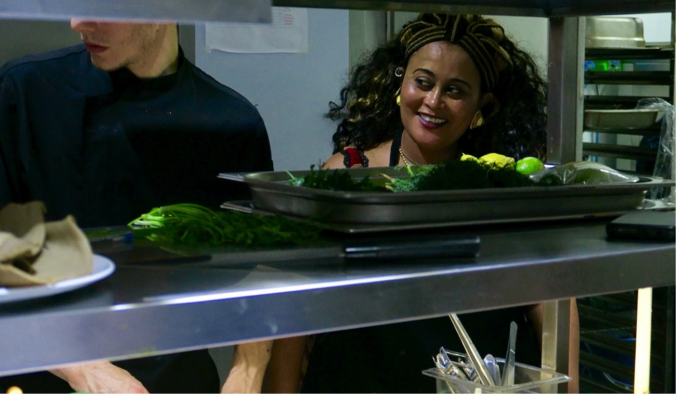By Emily Spalding
ATHENS, Greece — In a city where Greek salad, feta cheese and souvlaki dominate menus, restaurants here were in for a distinct dining experience when six restaurants swapped their pita for injera.
During the third week in June, Athens restaurants opened their kitchens to accomplished chefs who also happened to be refugees. They prepared meals from their native countries — including Eritrea, Syria and Afghanistan — as part of the Refugee Food Festival.
Launched two years ago by French citizens Marine Mandrila and Louis Martin, today the festival has won an international audience, with 15 cities participating across three continents. The list includes Athens and the nearby island city of Mytilene, perhaps the most striking locations given their position at the center of the European refugee crisis.
Sudha Nair, the organizer of the festival, has been involved since its conception. She also said she has worked to contain the refugee crisis “long before it became a crisis,” as a member of a number of media organizations. In her eyes, food is a vehicle for unifying cultures and people, and can help tell stories.
“Most of these refugees left home with just a suitcase. Probably a suitcase full of memories of home cooking, of grandmothers and recipes they shared, and trips to the bazaars and souks,” Nair said. “[With the festival], we wanted to evoke some of that: to show that the best way to understand others is to break bread together, is to share stories around a table.”
Nair explained that in addition to wanting to break stereotypes and introduce new and interesting cuisines to restaurant goers, the objective of the festival was “to integrate these chefs” — many of which were professional chefs back home — “professionally in Greek society.”
In 2017, five chefs and five restaurants took part in Athens. In 2018, four of those five chefs are employed as chefs in Greece, with the other chef relocating outside of Greece, according to Nair.

Chef Seinat Neftalem
On June 20, Seinat Neftalem was the visiting chef at Bluefish Athens, a seafood restaurant in the Athens neighborhood of Monastiraki. A migrant from Dekemhare, Eritrea, who has been in Greece since 2012, Neftalem has a passion for cooking and her native cuisine that was apparent in her four-course meal.
“I am a refugee, so I just want to represent my country,” Neftalem said. “When I was a kid, my mother was a good cooker, so she was able to teach me how to make delicious food.”
This event marks Neftalem’s fourth time in a festival, though she remains unemployed.
“My dream is to open my own restaurant so that I will be able to survive and to live,” she said.
Janet Besir, who owns Bluefish with husband and chef George Economidis, learned of the festival from Nair, and was excited to participate, since she is half Tunisian. Besir plans to continue working with migrant chefs after the festival.
Nair hopes the food will encourage diners to “seek something different, not just in terms of taste, but they’ll seek restaurants that go beyond the ordinary, that are actually doing something and contributing to make a difference in some way.”
Nair said she has visited more than 20 refugee camps and found the residents have little say in their diets.

A course at Bluefish Athens
“It upset me that there was someone else cooking for them. One of the first complaints at every single camp or every single place where you had refugee[s] being housed was ‘we hate the food,’ ” Nair said.
“I feel when you are displaced from your home … and you also take away food from that equation, then you are really robbed of your dignity in some ways.”
Nair recently returned from the island of Lesbos, where nearly 100 refugees arrive each day. She explained how she felt inspired by the locals who have welcomed the migrants.
“Despite the economic crisis that you have in Greece and despite the challenges that Greeks themselves face, I think they’ve been extremely embracing of the fact that these refugees are human beings as well, that they had lives, they had professions before,” Nair said. “The idea of the Refugee Food Festival was really to show that. To say that they’re not parasites, they’re not taking away from your system, they’re actually giving back.”
